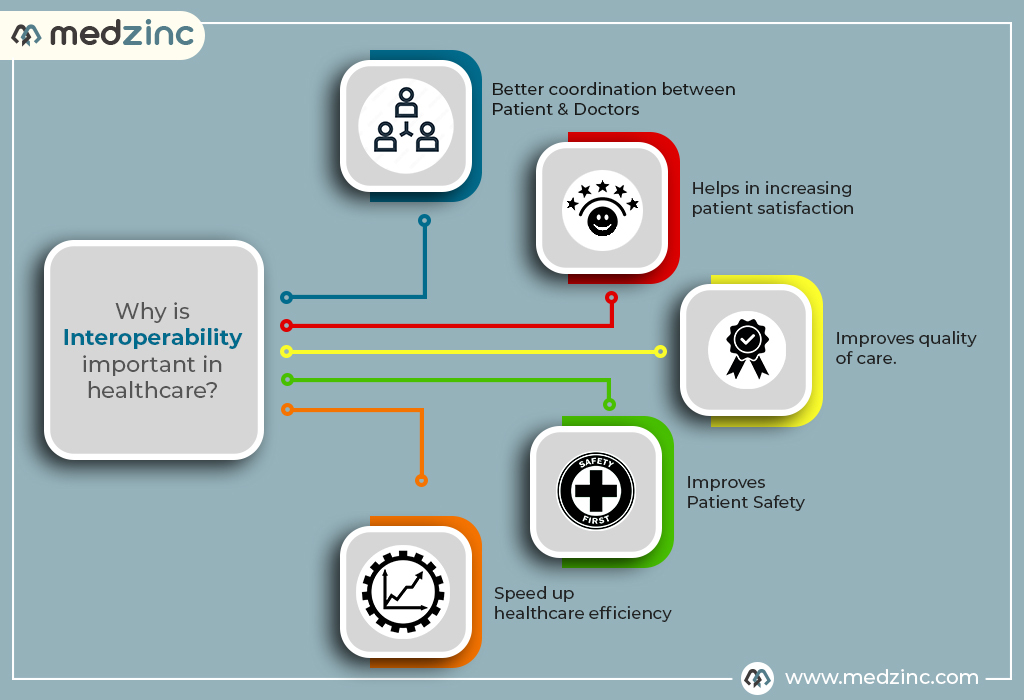
Why is Interoperability Important in Healthcare?
What is Interoperability in healthcare?
Interoperability in healthcare enables accessing and sharing the updated and comprehensive medical data. This transfer of data is not dependent on any healthcare system or technology. Interoperability's main issue is that it is challenging to execute well. There aren't many systems that can handle this level of integration because it takes a lot of work. The two key reasons of why is interoperability important in healthcare are:
- Seamless exchange of data between various systems.
- Avoidance of patient data duplication.
Interoperability makes it easier for the healthcare sector to exchange patient medical information. Additionally, it improves patient outcomes, which reduces costs by cutting down on paperwork. There are two kinds of interoperability:
- Data exchange
- Clinical integration.
Data exchange is when you are sharing information between two different systems. For instance, when one hospital sends patient records to another hospital. Clinical integration is integration of data sources together to have a look at the bigger picture. For example, combining all the information from different sources into one database so you can see everything at once instead of having to go through each source.
Why is Interoperability Important in Healthcare?
Better Coordination between patients and doctors. The reason why is interoperability important in healthcare is because it allows for better coordination between patients and their doctors. This means that when a patient needs an appointment or access to a specialist, they can do so without having to wait on hold or talk to a computer. It reduces the physician's burnout as it becomes easy for him to access and locate things. Patients don't need to hustle to access and share their documents at different places or with different doctors. It also means that patients get the care they need when they need it—and not before then.
Helps in increasing patient satisfaction.
Interoperability also increases patient satisfaction. It does that by allowing them to receive their care from any doctor or specialist in the community. This means that if one doctor isn't available, another doctor can step in and provide care —preventing more delays for the patient.
Improves quality of care.
Data that is accessible helps prevent duplication. Moreover, it ensures that patients receive the right tests and drugs at the right time. We can enhance value-based care by providing a better, safer, and more effective experience thanks to this data openness.
Improves Patient Safety.
Among the many reasons why is interoperability important in healthcare is that it improves patient safety to a large extent. It adds a very significant element of safety and enhances the quality of service. It does that by reducing medical record errors and increasing patient safety.
Speed up healthcare efficiency.
It helps drop various barriers to communication & bridges the gap between healthcare providers. Accessing and exchanging medical data from a single system is now simple. Thus, it has resulted in accelerating healthcare efficiency.
Conclusion
Throughout this article, we have seen how interoperability plays a key role in organizing and simplifying the healthcare sector. Additionally, how it can improve the quality of care and efficiency. Therefore, we cannot ignore the advantages of interoperability in healthcare. Stay tuned to medzinc for more such informational blogs.
Related Post
No results.